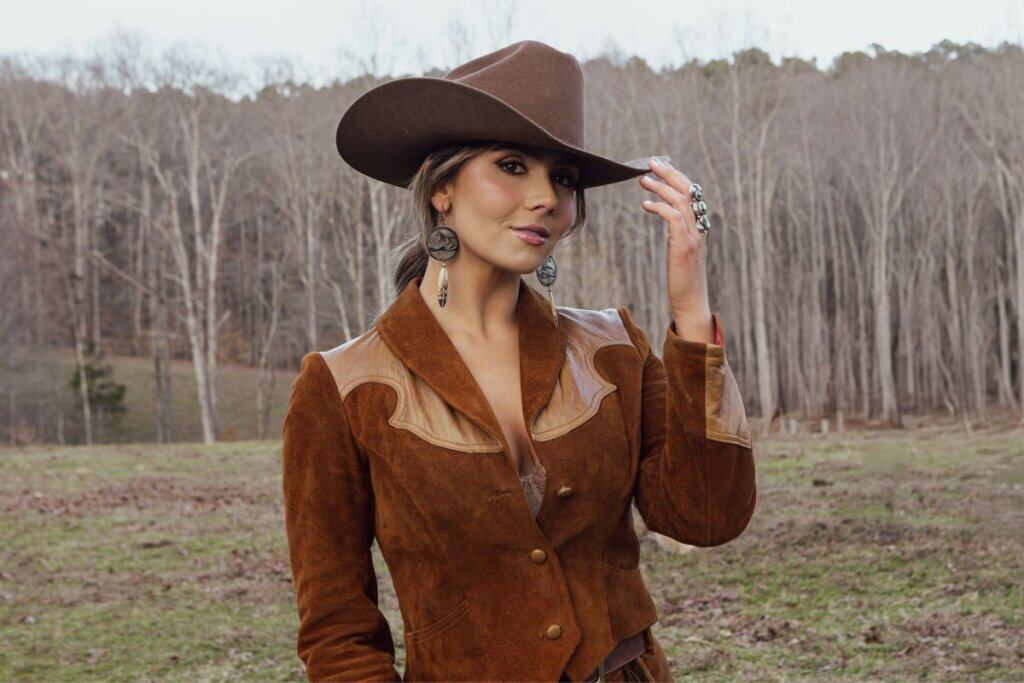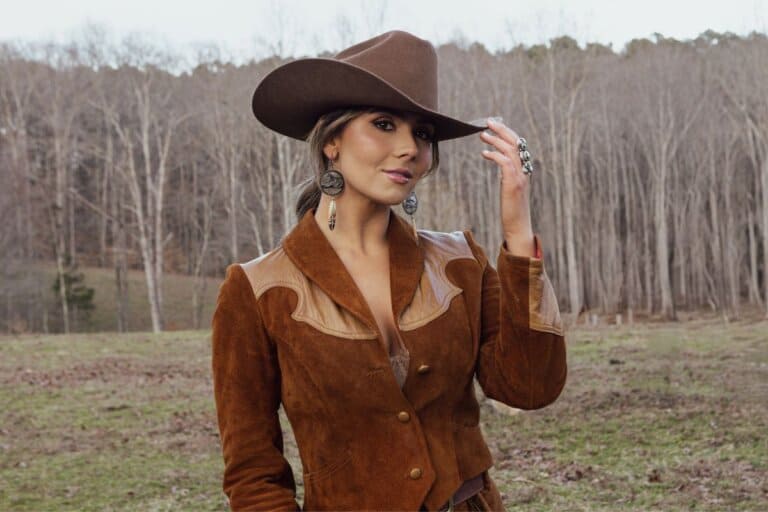- Interviews
- /
- Music
- /
- News
- /
- The Profile
The Profile: How Runaway June Got Creative Amid a Pandemic, a Line-Up Shift and a Reimagined ‘We Were Rich’
When the COVID-19 outbreak began sweeping through the U.S. in early March, the country industry changed overnight: Tours were postponed,…

Runaway June; Photo by CeCe Dawson 1
When the COVID-19 outbreak began sweeping through the U.S. in early March, the country industry changed overnight: Tours were postponed, in-person events canceled, and artists cleared their calendars first for the summer, and then for the year. For bands like Runaway June, the uncertainty and social distancing regulations also made it difficult to keep writing new music — at least, early on.
“At first, it wasn’t [creative] at all. It was so scary, and the Zoom writes weren’t happening, no one knew how to do that. There were sound delays and technological malfunctions…No one knew what we were gonna write about,” admits Naomi Cooke. “I’ll speak for myself — I was really fear-stricken. I was not creative. I was afraid for my family and my business and my bandmates and all the people that work for us.”
On top of all the uncertainties of having to figure out how to keep being a country band during a global pandemic, Runaway June had other challenges to address. Bandmate Jennifer Wayne contracted COVID-19, subsequently sharing her story about batting and ultimately recovering from the virus. Then, the band announced that their third member, Hannah Mulholland, had made the decision to leave the group.
Wayne and Cooke had a decision to make: They could either move forward as a duo, or enlist a new bandmate to round out their group. The pair realized that if they were going to replace Mulholland, only one person came to mind: Ace fiddler and veteran solo performer Natalie Stovall.
“She was actually the only person on the list, when this whole thing happened and Hannah left,” says Wayne. “You know, like, this was a big decision for Naomi and I. Do we just be a duo or bring someone in? This is our baby of six years that we put so much work into. We didn’t wanna just give that away.”

But Stovall wasn’t a stranger. She and the trio were longtime acquaintances and mutual fans. Wayne also had personal experience working with Stovall, back when she released a single to country radio and Wayne was her radio rep.
“So we had already worked together and there was already a chemistry between me and her,” Wayne goes on to say, adding that Cooke had also gotten to know Stovall over the past few years. “And crazily enough, in February, we were both playing a show together and [Stovall and Cooke] got to really spend a lot of time together a month before this whole thing happened.
“It was either Natalie or no one — we were just gonna be a duo,” Wayne affirms. “We don’t want her to change. That’s why we asked her to be in the band. And she’s been like a breath of fresh air.”
Prior to the pandemic and their lineup shift, Runaway June followed “Buy My Own Drinks” — a Top 5 hit, and the leading single off their debut album, Blue Roses — with a new radio release, “Head Over Heels.” But when the world changed, that uptempo, self-love anthem no longer felt right.
“It was like overnight, that song was irrelevant,” says Cooke. “And we know as artists that it’s our responsibility to give our audience things they can relate to.”
They swapped “Head Over Heels” out for “We Were Rich,” a stirring ode to all the small delights and memories that add up to a perfectly imperfect childhood. Amid the turbulence of life during a pandemic, it provides listeners with some much-needed warmth and nostalgia.
“This is a song that just takes you out of the moment and puts you into the bliss of childhood,” Cooke explains. “And remembering that there was a time when you didn’t worry about anything except your next macaroni and cheese meal. That’s something I think people need to be reminded of right now, that there were simpler times and that there will be simpler times again.”
She points out that the song could have a special resonance for today’s parents, many of whom are yoked with the additional burdens of distanced learning and keeping their kids entertained during quarantine.
“It’s not about being able to buy them the best toy or the most elaborate vacation. [It’s about ensuring] that they’re nurtured with love and they can play outside. And that the memories that you never think would stick are what makes them a great adult,” Cooke adds.

The trio recorded a new version of “We Were Rich” to feature their new bandmate, with Stovall playing fiddle on the track as well as adding harmony vocals.
“It was really cool, because it was my favorite song of Runaway June’s,” says Stovall of her experience recording the song. “I might be biased, but I also thought a fiddle would sound really good on it, so I was really excited to go in and add that to it.”
The fiddle lines add to the nostalgic quality of a song that already takes its listeners back to their childhoods. “It’s like a little time machine in three and a half minutes. I wanted to make sure I did something to honor that,” she explains.
Though the song was a perfect choice for Stovall’s first contribution to the group, it was also daunting: She cut her part of the track early on in Nashville’s quarantine, so her new bandmates couldn’t be in studio with her to offer feedback.
“It was just me and an engineer in the studio!” adds Stovall with a laugh. Early conversations about her role in the band also happened virtually, with all three members in different cities. Still, their new vision of the band came together organically, because Cooke and Wayne weren’t asking Stovall to change anything about her musicianship.
“One of the things that was really important to me was that they weren’t asking me to do anything different or replace anyone or try to be something that already existed. They just called me because they know what I do,” Stovall goes on to say. “I don’t feel like I need to be something different. I get to just do what I do — as a part of Runaway June.”
And meanwhile, as quarantine wore on, the fear that had stifled Cooke’s creativity began to give way to a new direction. The band, and the Nashville songwriting community, adapted. They found ways around the technical difficulties and sound delays of virtual co-writing.
“It started to be like, ‘Okay, let me look at this from a different perspective. I’ve got some time off. Everyone still wants to write. Let’s figure this Zoom thing out,’” Cooke recounts. “We all kind of got into a rhythm, and it’s been great. We’ve actually been writing some pretty sick stuff. So yeah, [quarantine] wasn’t creative at first, but now it is. I feel like I could write every day now.”







